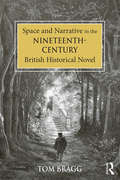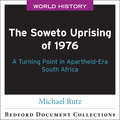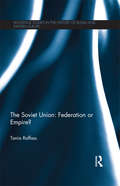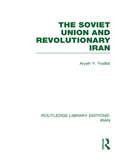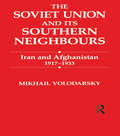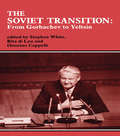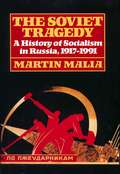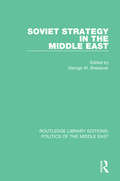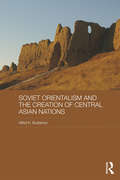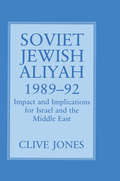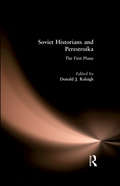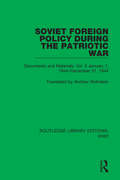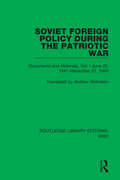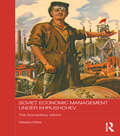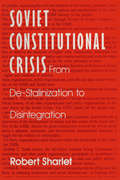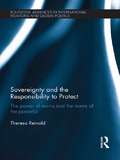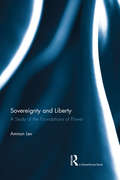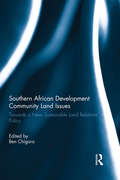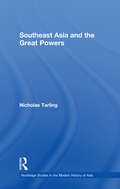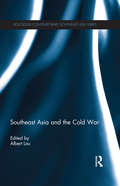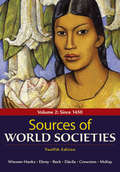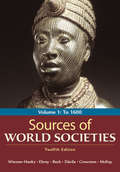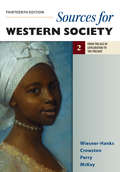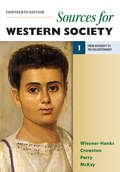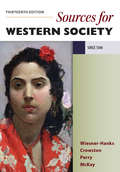Special Collections
Benetech’s Global Certified Accessible Titles
Description: Benetech’s GCA program is the first independent third-party EPUB certification to verify ebook accessibility. By creating content that is born accessible, publishers can meet the needs of all readers. Learn more: https://bornaccessible.benetech.org/
- Table View
- List View
Space and Narrative in the Nineteenth-Century British Historical Novel
by Tom BraggDemonstrating that nineteenth-century historical novelists played their rational, trustworthy narrators against shifting and untrustworthy depictions of space and place, Tom Bragg argues that the result was a flexible form of fiction that could be modified to reflect both the different historical visions of the authors and the changing aesthetic tastes of the reader. Bragg focuses on Scott, William Harrison Ainsworth, and Edward Bulwer Lytton, identifying links between spatial representation and the historical novel's multi-generic rendering of history and narrative. Even though their understanding of history and historical process could not be more different, all writers employed space and place to mirror narrative, stimulate discussion, interrogate historical inquiry, or otherwise comment beyond the rational, factual narrator's point of view. Bragg also traces how landscape depictions in all three authors' works inculcated heroic masculine values to show how a dominating theme of the genre endures even through widely differing versions of the form. In taking historical novels beyond the localized questions of political and regional context, Bragg reveals the genre's relevance to general discussions about the novel and its development. Nineteenth-century readers of the novel understood historical fiction to be epic and serious, moral and healthful, patriotic but also universal. Space and Narrative in the Nineteenth-Century British Historical Novel takes this readership at its word and acknowledges the complexity and diversity of the form by examining one of its few continuous features: a flexibly metaphorical valuation of space and place.
The Soweto Uprising of 1976
by Bedford/St.Martin's and Michael RutzThe documents in this collection introduce students to the Soweto Uprising and the viewpoints of the white government and the African opposition. Readers will enter into the debates over race relations, equality of opportunity, and the consequences of imperialism that framed the history of apartheid-era South Africa. Students will engage with a wide range of primary sources, guided in their analyses by a learning objective, central question, historical background, source headnotes, source questions, project questions and suggestions for further research. Through their work with these documents, they will gain a more complete understanding of the present in an historically-based context, an enhanced ability to read, interpret, assess, and contextualize primary sources, and practice explaining historical change over time.
The Soviet Union - Federation or Empire?
by Tania RaffassThe Soviet Union is often characterised as nominally a federation, but really an empire, liable to break up when individual federal units, which were allegedly really subordinate colonial units, sought independence. This book questions this interpretation, revisiting the theory of federation, and discussing actual examples of federations such as the United States, arguing that many federal unions, including the United States, are really centralised polities. It also discusses the nature of empires, nations and how they relate to nation states and empires, and the right of secession, highlighting the importance of the fact that this was written in to the Soviet constitution. It examines the attitude of successive Soviet leaders towards nationalities, and the changing attitudes of nationalists towards the Soviet Union. Overall, it demonstrates that the Soviet attitude to nationalities and federal units was complicated, wrestling, in a similar way to many other states, with difficult questions of how ethno-cultural justice can best be delivered in a political unit which is bigger than the national state.
The Soviet Union and Revolutionary Iran
by Aryeh YodfatRelations between the USSR and Iran during the period from the overthrow of the Shah and the establishment of the Islamic Republic up to early 1983 are reviewed in this book. It begins with a brief survey of Russian-Persian relations in earlier years, with a focus on the developments that served as a background to the current events. It examines Soviet attitudes and reactions to Iran’s foreign and internal policy and highlights the way in which the Soviets often raise events of which they do not approve in order to draw Iran closer to them. In particular, the book discusses the Soviet response to the Iran-Iraq war and the position of the Tudeh Party and the other leftists within Iran. Iran’s policy towards the USSR is treated at length and it is shown that it is suspicious of a tacit USA-USSR agreement over the fate of Iran. Khomeini’s attempts to isolate Iran from both East and West are also reviewed. This book was one of the first to discuss this crucial dimension in Middle East politics and it makes a significant contribution to our understanding of the forces driving the Iranian Revolution.
The Soviet Union and Its Southern Neighbours
by Mikhail VolodarskyVolodarsky (Russian and East European studies, Tel Aviv U.) argues that the new Soviet Union continued Imperial Russia's policy of controlling its southern neighbors through promises and threats.
The Soviet Transition
by Stephen White and Rita Di Leo and Ottorino CappelliOf course we watched it all on television, day by day, as the Evil Empire transmuted into the Circus Bear, but seeing it and knowing what to think about it are not the same. Scholars from eastern and western Europe and North America help out, in 14 papers from an April 1992 conference in Naples.
Soviet Tragedy
by Martin Malia"The Soviet Tragedy is an essential coda to the literature of Soviet studies...Insofar as [he] returns the power of ideology to its central place in Soviet history, Malia has made an enormous contribution. He has written the history of a utopian illusion and the tragic consequences it had for the people of the Soviet Union and the world." -- David Remnick, The New York Review of Books "In Martin Malia, the Soviet Union had one of its most acute observers. With this book, it may well have found the cornerstone of its history." -- Francois Furet, author of Interpreting the French Revolution "The Soviet Tragedy offers the most thorough scholarly analysis of the Communist phenomenon that we are likely to get for a long while to come...Malia states that his narrative is intended 'to substantiate the basic argument,' and this is certainly an argumentative book, which drives its thesis home with hammer blows. On this breathtaking journey, Malia is a witty and often brilliantly penetrating guide. He has much wisdom to impart." -- The Times Literary Supplement "This is history at the high level, well deployed factually, but particularly worthwhile in the philosophical and political context -- at once a view and an overview." -- The Washington Post
Soviet Strategy in the Middle East
by James Clay Moltz and Galia Golan and Benjamin Miller and George W. Breslauer and Yaacov Ro’i and Dennis B. RossFew regions of the world are as politically turbulent as the Middle East, and nowhere is the potential for superpower conflict greater. How does the Soviet Union view the Middle east conflict? Can the USSR play a constructive role in the peace process? In this volume, first published in 1990, these questions and others central to an understanding of Soviet strategy in the region are addressed. Previous analysts of Soviet-Middle Eastern relations have tended to emphasize either the cooperative or the competitive aspects of Soviet behaviour. Breslauer instead offers the multidimensional concept of ‘collaborative competition’ to describe the mixed motives, ambivalence, and sometimes conflicting perspectives that have informed Soviet strategy in the region. In such an unstable environment. this strategy of collaborative competition has in turn encouraged ‘approach-avoidance’ behaviour; for example, while the Soviets may seek to moderate their radical allies, they remain fearful that these allies, once moderated, might defect to US patronage. Under Gorbachev, the Kremlin continues to pursue this same strategy but with increased attention to improving collaboration, redefining the nature of the competition, and easing the approach-avoidance dilemma. Breslauer argues that these changes could lead to more flexible Soviet behaviour in the region. This volume combines new, in-depth research on Soviet policy with new interpretations, including insights drawn from relevant theories of international relations.
Soviet Orientalism and the Creation of Central Asian Nations
by Alfrid K. BustanovOrientalism – the idea that the standpoint of Western writers on the East greatly affected what they wrote about the East, the "Other" – applied also in Russia and the Soviet Union, where the study of the many exotic peoples incorporated into the Russian Empire, often in quite late imperial times, became a major academic industry, where, as in the West, the standpoint of writers greatly affected what they wrote. Russian/Soviet orientalism had a particularly important impact in Central Asia, where in early Soviet times new republics, later states, were created, often based on the distorted perceptions of scholars in St Petersburg and Moscow, and often cutting across previously existing political and cultural boundaries. The book explores how the Soviet orientalism academic industry influenced the creation of Central Asian nations. It discusses the content of oriental sources and discourses, considers the differences between scholars working in St Petersburg and Moscow and those working more locally in Central Asia, providing a rich picture of academic politics, and shows how academic cultural classification cemented political boundaries, often in unhelpful ways.
Soviet Jewish Aliyah, 1989-92
by Clive A. JonesThis book provides new insights into a period of fundamental change in Israel and the Middle East. It explains how the Israeli government failed to effectively handle the integration of new emigres from the Soviet Union, and how it alienated traditional Likud supporters among Oriental Jews in Israel. Clive Jones's argument is that, by placing its ideological commitment to the retention of the West Bank above other priorities, the Likud leadership made itself beholden to the United States for financial assistance which was then denied. The resulting fundamental change in the composition and orientation of the Israeli political leadership has had a major influence on the course of the Arab-Israeli peace process.
Soviet Historians and Perestroika
by Donald J. RaleighThe Soviet historical profession is in ferment. For decades it was relegated to the task of obfuscating the past, gilding the status quo and papering over the "blank spots" in Soviet history - events that defied even the most brazen attempts at falsification. Today it is engaged in an often painful process of self-examination. Initially rather timid, the internal discussion was soon propelled by external events - the scuttling of history textbooks, official disclosures of formerly "classified" facts and the explosion of candour in the depictions of the past in memoirs, journalistic writing and fiction. This volume gives voice to the lead actors in the "first phase" of this process - the senior historians, their journalistic "challengers" and those charged with responsiblity for the institutions of research, training and publication in the field of history.
Soviet Foreign Policy During the Patriotic War
by Andrew RothsteinThis book, first published in 1946, collects documents illustrating the foreign policy of the Soviet Union during the Second World War. They show how the fighting alliance of the USSR, Britain and the USA came into being and grew stronger, how relations were restored with other anti-Nazi countries, and how diplomatic relations were extended between the USSR and hitherto un-connected countries. The collection of three parts of translated documents: statements and speeches made by Stalin; documents, treaties, agreements; appendices including press statements and telegrams.
Soviet Foreign Policy During the Patriotic War
by Andrew RothsteinThis book, first published in 1946, collects documents illustrating the foreign policy of the Soviet Union during the Second World War. They show how the fighting alliance of the USSR, Britain and the USA came into being and grew stronger, how relations were restored with other anti-Nazi countries, and how diplomatic relations were extended between the USSR and hitherto un-connected countries. The collection of three parts of translated documents: statements and speeches made by Stalin; documents, treaties, agreements; appendices including press statements and telegrams.
Soviet Economic Management Under Khrushchev
by Nataliya KibitaThe Sovnarkhoz Reform of 1957 was designed by Khrushchev to improve efficiency in the Soviet economic system by decentralising economic decision making from all-Union branch ministries in Moscow to the governments of the individual republics and regional economic councils. Based on extensive original research, including unpublished archival material, this book examines the reform, discussing the motivations for it, which included Khrushchev's attempt to strengthen his own power base. The book explores how the process of reform was implemented, especially its impact on the republics, and analyses why the reform, which was reversed in 1959, failed. Overall, the book reveals a great deal about the workings, and the shortcomings, of the Soviet economic system at its height.
Soviet Constitutional Crisis
by Robert SharletMoving from the adoption of the "post-Stalin" Constitution of 1977 through its subsequent implementation under Brezhnev, Andropov, and Chernenko to the radical legal "restructuring" of the Gorbachev years, Robert Sharlet traces the gradual evolution of a nascent constitutionalism in the erstwhile USSR. Sharlet, a noted authority on Soviet law and constitutional development, demonstrates the gradual transformation of law from an instrument of Communist Party rule into the new "rules of the game" for nonauthoritarian political development. In effect, he argues, one of Gorbachev's most durable achievements may be his redefinition of Soviet politics into a legal idiom along with his relocation of policymaking from behind the closed doors of Party conclaves into the more open, emergent arena of constitutional government. In analyzing the politics of law from the Brezhnev era to the rise of Yeltsin, the author takes account of the "war of laws", the symbolic uses of the Soviet constitution, and even the fact that the leaders of the failed coup attempted to justify their seizure of power on constitutional grounds. Constitutionalism has sufficiently suffused Soviet public life, the book concludes, that most of the sovereign republics as successors to the former USSR, have begun designing their futures - to varying degrees - in constitutional forms.
Sovereignty and the Responsibility to Protect
by Theresa ReinoldThis book explores how the bedrock institution of today’s global order – sovereignty – is undergoing transformation as a result of complex interactions between power and norms, between politics and international law. This book analyses a series of controversial military interventions into the internal affairs of "irresponsible sovereigns" and discusses their consequences for the rules on the use of force and the principle of sovereign equality. Featuring case studies on Kosovo, Darfur and Afghanistan, It shows that frames from one discourse (for example the debate over the responsibility to protect) have been imported into other discourses (on counter-terrorism and nuclear non-proliferation) in an attempt to legitimize a bold challenge to the global legal order. Although the ‘demise’ of sovereignty is widely debated, this book instead seeks to ‘deconstruct’ sovereignty by explaining how this institution has been reconstituted by global powers whose hegemonic law-making activities have popularized the notion of sovereignty as responsibility. Drawing on international relations theory, international law and sociology, Sovereignty and the Responsibility to Protect develops a truly interdisciplinary perspective on the transformation of sovereignty and will be of strong interest to students and scholars in these fields.
Sovereignty and Liberty
by Amnon LevThe attitude we take to power is almost invariably one of distrust, never more so than when it claims to be sovereign. And yet, we have always been drawn to sovereignty. Out of fear or fascination, we accepted that it was a condition of our liberty; that to assert ourselves as free, we would have to work not against but through sovereign power. This book retraces the history of the implication of sovereignty and liberty, an implication that has shaped the way we live together, as individuals and as political beings. Shedding new light on the work of key political and constitutional thinkers, including Marsilius of Padua, Hobbes, Hegel, Kelsen, and Schmitt, it identifies the conceptual operations that created sovereignty and shows how subjection to an absolute and undivided power came to be a source of meaning. At the heart of the analysis is the idea that sovereignty made reference to and relied upon a form of faith which aligned man’s political existence on law. Offering new and often controversial insights into the grounds of our attachment to sovereign power and into the crisis that is currently affecting its institutions, this book will appeal to students and scholars of law, politics, history of philosophy, and the social sciences.
Southern African Development Community Land Issues
by Ben ChigaraThis book constitutes volume one of a two volume examination of development community land issues in Southern Africa. In this volume, Ben Chigara undertakes a holistic inter-disciplinary evaluation of the legitimacy of colonial and emergent post-colonial rule property rights in affected States of the Southern African Development Community (SADC). It particularly focuses on intensifying litigation in national courts, the SADC Tribunal, and more recently the Washington based International Centre for the Settlement of Investment Disputes (ICSID) regarding counter claims to title to property. The book examines cultural, economic and political drivers at the core of SADC land issues, focusing on their significance and potential to contribute to the discovery of a new, sustainable land relations policy that guarantees social justice in the distribution of all the advantages and disadvantages relating to the allocation and use of land. Chigara shows that persistent systematic administrative failures by pre-colonial, colonial and post-colonial authorities have made for a very complex challenge that requires Solomonic tools that neither the Courts alone, nor human rights centric morality alone could resolutely attend. The book recommends a sophisticated systematic new approach to SADC land issues, which is developed in volume two, Re-conceiving Property Rights in the New Millennium. This book will be of great interest to students and researchers of Property and Conveyancing Law, Human Rights Law and Land Law.
Southeast Asia and the Great Powers
by Nicholas TarlingThe success of regionalism in Southeast Asia depends on the attitudes of the states within the region but also on the attitude of those outside it. This book is an erudite and stimulating study on the latter. Placing these states in a long term historical context Tarling brings out the way in which the rivalries of those powers within the region and outside it have affected the states within the region. He also shows how divisions within the region, and within states in the region, offered invitations and opportunities for intervention from outside, and so perhaps gave Southeast Asia an importance in international relations it would not otherwise have had. Regional leaders appear in recent decades to have recognised what may be construed as one of the lessons of history; if Southeast Asia can provide security for the Straits route, and stable conditions for trade and investment, it might enjoy both peace and a measure of prosperity. Southeast Asia and the Great Powers is an important read for students and scholars of the history and international relations of Southeast Asia.
Southeast Asia and the Cold War
by Albert LauThe origins and the key defining moments of the Cold War in Southeast Asia have been widely debated. This book focuses on an area that has received less attention, the impact and legacy of the Cold War on the various countries in the region, as well as on the region itself. The book contributes to the historiography of the Cold War in Southeast Asia by examining not only how the conflict shaped the milieu in which national and regional change unfolded but also how the context influenced the course and tenor of the Cold War in the region. It goes on to look at the usefulness or limitations of using the Cold War as an interpretative framework for understanding change in Southeast Asia. Chapters discuss how the Cold War had a varied but notable impact on the countries in Southeast Asia, not only on the mainland countries belonging to what the British Foreign Office called the "upper arc", but also on those situated on its maritime "lower arc". The book is an important contribution to the fields of Asian Studies and International Relations.
Sources of World Societies, Volume 2
by Jerry Davila and John McKay and Roger Beck and Clare Crowston and Merry E. Wiesner-Hanks and Patricia Buckley EbreySources of World Societies is an expertly crafted collection of historical sources with a variety of global, cultural perspectives from around the world.
Sources of World Societies, Volume 1
by Jerry Davila and John McKay and Roger Beck and Clare Crowston and Merry E. Wiesner-Hanks and Patricia Buckley EbreySources of World Societies is an expertly crafted collection of historical sources with a variety of global, cultural perspectives from around the world.
Sources for Western Society, Volume 2
by Joe Perry and John McKay and Clare Crowston and Merry E. Wiesner-HanksSources for Western Society provides a variety of primary sources to accompany A History of Western Society, Thirteenth Edition. With over thirty new selections – including several compelling visual sources – and enhanced pedagogy throughout, students are given the tools to engage critically with canonical and lesser known sources. Each chapter includes a Sources in Conversation feature that asks students to analyze aspects of differing views on key topics. Sources for Western Society is FREE when packaged with A History of Western Society and is included for FREE with the LaunchPad for A History of Western Society. In LaunchPad for A History of Western Society, 13e, which combines ebooks for A History of Western Society and Sources for Western Society in a central course space, innovative auto-graded exercises accompanying the reader’s documents and visuals supply a distinctive and sophisticated pedagogy that not only helps students understand the sources but think critically about them. Sources for Western Society is also available to customize through Bedford Select.
Sources for Western Society, Volume 1
by Joe Perry and John McKay and Clare Crowston and Merry E. Wiesner-HanksSources for Western Society provides a variety of primary sources to accompany A History of Western Society, Thirteenth Edition. With over thirty new selections – including several compelling visual sources – and enhanced pedagogy throughout, students are given the tools to engage critically with canonical and lesser known sources. Each chapter includes a Sources in Conversation feature that asks students to analyze aspects of differing views on key topics. Sources for Western Society is FREE when packaged with A History of Western Society and is included for FREE with the LaunchPad for A History of Western Society. In LaunchPad for A History of Western Society, 13e, which combines ebooks for A History of Western Society and Sources for Western Society in a central course space, innovative auto-graded exercises accompanying the reader’s documents and visuals supply a distinctive and sophisticated pedagogy that not only helps students understand the sources but think critically about them. Sources for Western Society is also available to customize through Bedford Select.
Sources for A History of Western Society, Since 1300
by Joe Perry and John McKay and Clare Crowston and Merry E. Wiesner-HanksSources for Western Society provides a variety of primary sources to accompany A History of Western Society, Thirteenth Edition. With over thirty new selections – including several compelling visual sources – and enhanced pedagogy throughout, students are given the tools to engage critically with canonical and lesser known sources. Each chapter includes a Sources in Conversation feature that asks students to analyze aspects of differing views on key topics. Sources for Western Society is FREE when packaged with A History of Western Society and is included for FREE with the LaunchPad for A History of Western Society. In LaunchPad for A History of Western Society, 13e, which combines ebooks for A History of Western Society and Sources for Western Society in a central course space, innovative auto-graded exercises accompanying the reader’s documents and visuals supply a distinctive and sophisticated pedagogy that not only helps students understand the sources but think critically about them. Sources for Western Society is also available to customize through Bedford Select.
